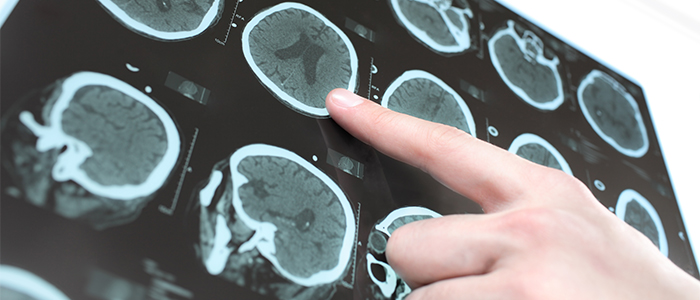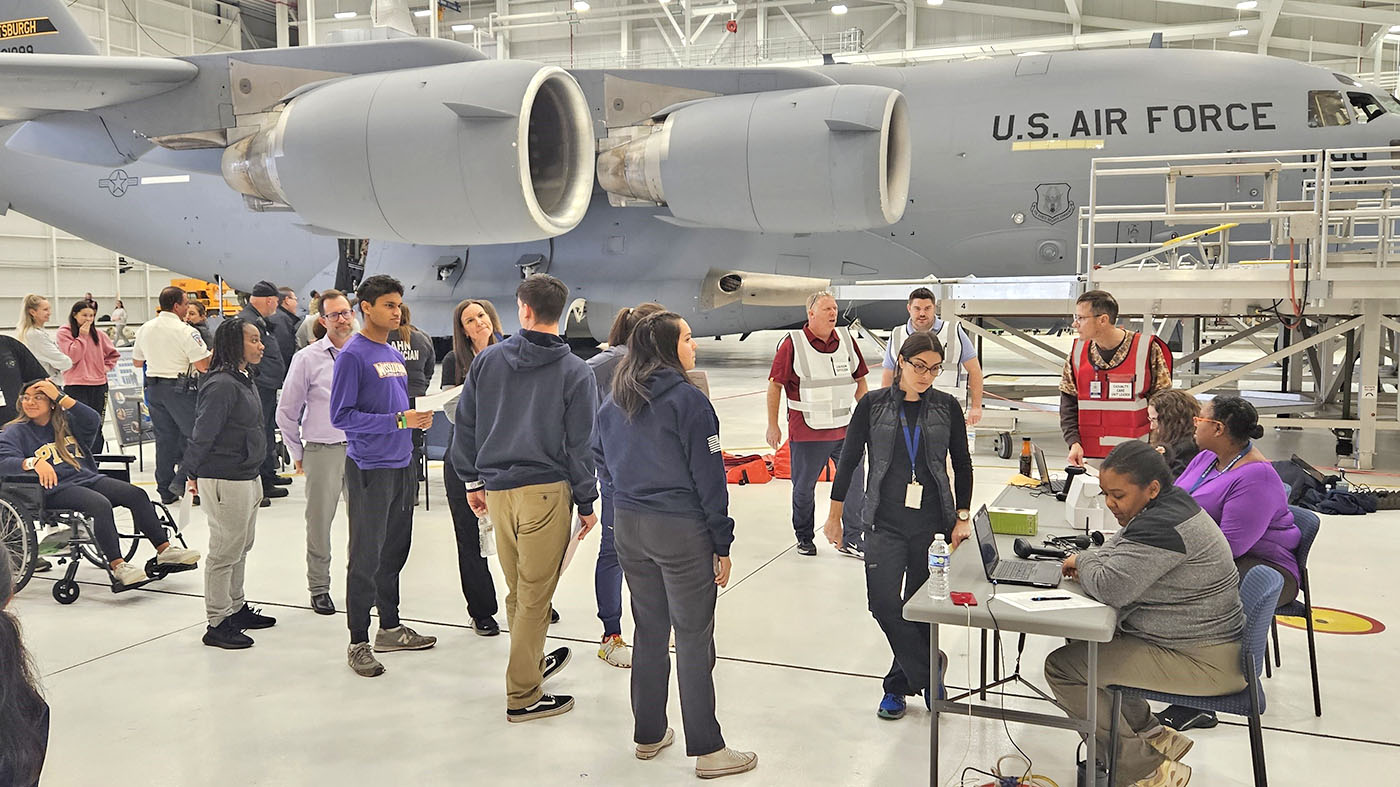In 2001, VA created six specialized centers known as the Parkinson’s Disease Research, Education and Clinical Centers to serve Veterans affected by Parkinson’s disease through state-of-the-art clinical care, education, research, and national outreach and advocacy. As we mark Parkinson’s Awareness Month in April, I’d like to draw attention to the important work taking place at these sites.
The centers are staffed by internationally known movement disorder specialists, neurosurgeons, psychiatrists, psychologists, nurses, researchers, educators, social workers and other Parkinson’s disease experts. Each center provides expert diagnosis, treatment planning, multidisciplinary care, support groups, and other valuable resources for Veterans with the condition. You can find the specialized Parkinson’s centers in Philadelphia; Richmond, Virginia; Houston; Los Angeles, San Francisco; and Portland/Seattle.
In addition to providing state-of-the-art clinical care for Veterans with Parkinson’s disease and similar disorders, the centers have a mission to conduct research to improve the diagnosis and treatment of these disorders. VA’s active research programs encompass many different areas of interest. Here’s a look at some of the exciting and promising research now in progress at our centers:
Deep brain stimulation—Several centers are studying deep brain stimulation — or DBS — for Parkinson’s disease and other disorders. As a group, the centers completed the largest sham-controlled, double-blinded trial of deep brain stimulation ever conducted and have published findings, in the Journal of the American Medical Association, that are guiding clinical care today. They recently concluded a five-year follow-up study of those patients and the data is being studied to understand the long-term impact of deep brain stimulation in Parkinson’s. The San Francisco center also pioneered the development of interventional MRI (iMRI)-DBS, a method that uses real-time MRI guidance for exact placement of DBS electrodes. No physiologic mapping is required, so implantation may be performed under general anesthesia with a single penetration of the brain.
Lifestyle modifications—Researchers throughout the Parkinson’s centers are investigating whether lifestyle modifications like diet, meditation, and exercise can affect Parkinson’s symptoms and progression. In Houston and Philadelphia, investigators are trying to understand why people with Parkinson’s have different bacteria in their gut than other people, and if modifying those bacteria could treat the disease. Other investigators, in Portland/Seattle and Philadelphia, are investigating different ways to treat balance problems in Parkinson’s, and in Houston, researchers are investigating variations in circadian rhythm and sleep patterns among patients.
Eye movements—The Southeast center, in Richmond, is conducting research on the eye movements of patients with various movement disorders. Our researchers have found that different eye movements are typical of different disorders, and they hope these differences can serve as the basis for new diagnostic methods.
Parkinson’s and dementia—Groups at the Northwest (Portland/Seattle) and Philadelphia centers have been studying for years why some people with Parkinson’s disease get dementia. The Northwest center has been involved with identifying genetic factors involved in the development of cognitive decline in Parkinson’s, and both groups collaborated on a study of brain autopsy findings, which showed that the brain changes involving a substance called “tau” are critical to the development of dementia in Parkinson’s. Efforts to use model systems to develop therapeutic treatments to interfere with these types of brain changes are currently under way at the Portland VA. Houston investigators have been participating in a multi-center study of possible long-term effects of TBI, to include Parkinson’s.
Parkinson’s and military service experiences—San Francisco investigators are studying the relationship between Parkinson’s disease and military-service-related experiences, such as traumatic brain injury, or exposure to toxicants including solvents, such as at Camp Lejeune, and Agent Orange. They also are looking at ways to identify Veterans at risk for Parkinson’s, providing the first step for early intervention and, ultimately, prevention.
Nurse-led care management intervention—Southwest Parkinson’s Center health services researchers and clinicians across Veterans Integrated Service Network (VISN) 22 are implementing and evaluating a nurse-led coordinated care management intervention for Veterans with Parkinson’s. The Care Coordination for Health Promotion and Activities in Parkinson’s Disease — referred to as the CHAPS Program — is Veteran-centered and mostly delivered by telephone. It aims to increase adherence to Parkinson’s quality indicators and improve health and well-being for Veterans with the condition, compared with usual care. This is done through structured assessments, evidence-based care protocols, clinical huddles with movement disorder specialists, and patient self-management tools. The program aims to drive meaningful and positive changes for Veterans and providers across the care continuum.
The National VA Parkinson’s Disease Consortium, a professional society comprised of VA physicians, nurses, therapists, and pharmacists with interest and expertise in the field of movement disorders complements the research at VA’s Parkinson’s centers. The consortium launched in 2003 to expand Parkinson’s disease awareness and education across VA. It offers peer networking, mentorship, education and training. Consortium centers are VA clinics that offer specialized Parkinson’s disease and movement disorder specialty care to Veterans who cannot travel to one of the other centers. These clinics are staffed by movement disorder specialists or clinicians with vast experience and/or interest in the field of movement disorders. Together, the six Parkinson’s centers and more than 50 consortium centers provide convenient and state-of-the-art care to Veterans throughout the country.
In closing, I want to emphasize that offer care to all Veterans currently enrolled in the VA health care system. This includes Veterans who have been previously diagnosed with Parkinson’s disease, and those who have just started to notice Parkinson-like symptoms. We also treat Veterans who have been diagnosed with other movement disorders, such as essential tremor.
For more information about the centers or the National VA Parkinson’s Disease Consortium, or for eligibility questions, please visit www.parkinsons.va.gov or call 1-800-949-1001 x5769.
About the author: John Duda, M.D., is the director of the Parkinson’s Disease Research, Education and Clinical Center at the Cpl. Michael J. Crescenz VA Medical Center, and an associate professor of neurology at the Perelman School of Medicine at the University of Pennsylvania. His research has included basic science investigations into the role of Lewy pathology in Parkinson’s disease and related disorders, and into the mechanisms involved in chronic traumatic encephalopathy. He has also conducted Parkinson’s disease research on deep brain stimulation therapy; transcranial magnetic stimulation; the benefits of a plant-based, whole-food diet; and the use of olfaction as a biomarker of disease diagnosis and progression.
Topics in this story
More Stories
Air Force Veteran Shireta Jones overcomes obstacles with support from VA and adaptive devices to continue her passion for pickleball.
Pittsburgh VA and its partners practice relocating hospitalized patients during disasters and public health emergencies.
VA and Veterans Yoga Project are working together to make more Veterans aware of the benefits of yoga while offering more classes.







None of it works, its all a façade – all talk with no real content. Who are you trying to fool?
The following content is non-working………
The web-site does not work nor the phone number listed. Recording says no longer in service.
For more information about the centers or the National VA Parkinson’s Disease Consortium, or for eligibility questions, please visit http://www.parkinsons.va.gov or call 1-800-949-1001 x5769. For further information about VA research on Parkinson’s disease, please visit http://www.research.va.gov/topics/parkinsons.